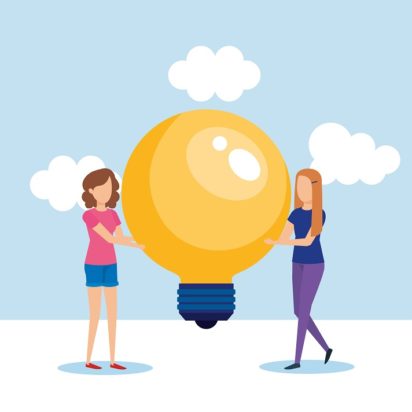Mindfulness is knowing what’s happening when it’s happening, without judgement but with kindness, compassion and acceptance. It’s about being aware of what is happening in our mind and our body to shape of our thoughts and feelings. When we heighten our sense of awareness, mindfulness can teach us to be more present in our lives. When we become more present, we can see more. This allows us to make wise choices and it allows us to be aware of how we react in certain situations. It’s an important skill for our personal growth.
The benefits of mindfulness
In today’s fast paced corporate environment, supporting mindfulness can lead to being stress-free and focused. This hopefully increases the likelihood of feeling like the time spent taking part in the proceeding worthwhile and profitable. Mindfulness training and seminars are one way to set up for success in the working day.
“It can help us to be more present at work” says Gary Young of The Mindful Enterprise, a social enterprise who specialise in mindfulness & wellbeing training for businesses and individual consumers. “People who are more mindful will start to behave in ways that are much more conscious, kind and cohesive. They can manage their energy well and can look at how they react to certain situations. They can be present with colleagues which is especially important for Managers and Leaders.”
How it can help
Being mindful can help to build resilience and emotional intelligence and can improve communication in the workplace. It also enables us to take a step back, consider alternative perspectives rather than using the wrong part of our brain to react spontaneously, and therefore helps us to flick the switch back to using our smart brain area, putting us back in control emotionally, and enabling us to choose a more appropriate response.

Mindfulness is knowing what’s happening when it’s happening, without judgement but with kindness, compassion and acceptance..


People who are more mindful will start to behave in ways that are much more conscious, kind and cohesive. They can manage their energy well. They can look at how they react to certain situations.

What challenges can it bring?
Some people struggle at the start of the mindfulness journey. Distractions, life drama, sometimes wanting to escape the here and now, certain attachments, and missing the point of mindfulness practice are things that can get in the way.
Progress may not come very quickly, but it will with consistency and determination.
As with any other practice, mindfulness takes time to understand, learn and incorporate into a lifestyle. But there are no challenges that cannot be overcome.
I want to start…but how?
Mindfulness can be practised formally and informally.
Formal mindfulness meditations are the longer sitting or lying down meditations which you can practice for 20-30 minutes. Apps like Headspace and Calm are available for these longer practices.
Practices for you to try
To begin with, here is a more formal meditation that can be done on the floor:
- Sit on a straight-backed chair or cross-legged on the floor.
- Focus on an aspect of your breathing, such as the sensations of air flowing into your nostrils and out of your mouth, or your belly rising and falling as you inhale and exhale.
- Once you’ve narrowed your concentration in this way, begin to widen your focus. Become aware of sounds, sensations, and your ideas.
- Embrace and consider each thought or sensation without judging it good or bad. If your mind starts to race, return your focus to your breathing. Then expand your awareness again.
Informal mindfulness can be brought to any daily activity such as eating, showering, cooking or cleaning. Just start with focusing on your breath and then engaging in your present-moment experience when you participate in a daily activity.
- when you eat, take the time to fully focus on the experience of just eating.
- Put down the newspaper and turn off the TV.
- Feel the sensations in your arm as you lift the food to your mouth and study the food.
- Make observations about weight, texture, smell, any sound it may make and the taste and how it feels in your mouth.
If your mind wanders away from the experience, just gently guide it back to whatever you were focusing on.
Lifechanging Habit
Self-care no longer has negative connotations; it is scientifically proven that mindfulness and meditation practice literally changes the brain and the supportive benefits that are life changing.
So, to all the sceptics out there, our advice to you is to give it a go. Mindfulness can help us all improve ourselves, no matter how different we think we are. Your thoughts are powerful and have a huge impact on your day-to-day actions without you even realising.
We should all have a better awareness of our thoughts, emotions and actions. Let’s start our journey to becoming better people.

Progress may not come very quickly, but it will with consistency and determination.
As with any other practice, mindfulness takes time to understand, learn and incorporate into a lifestyle. But there are no challenges that cannot be overcome.



